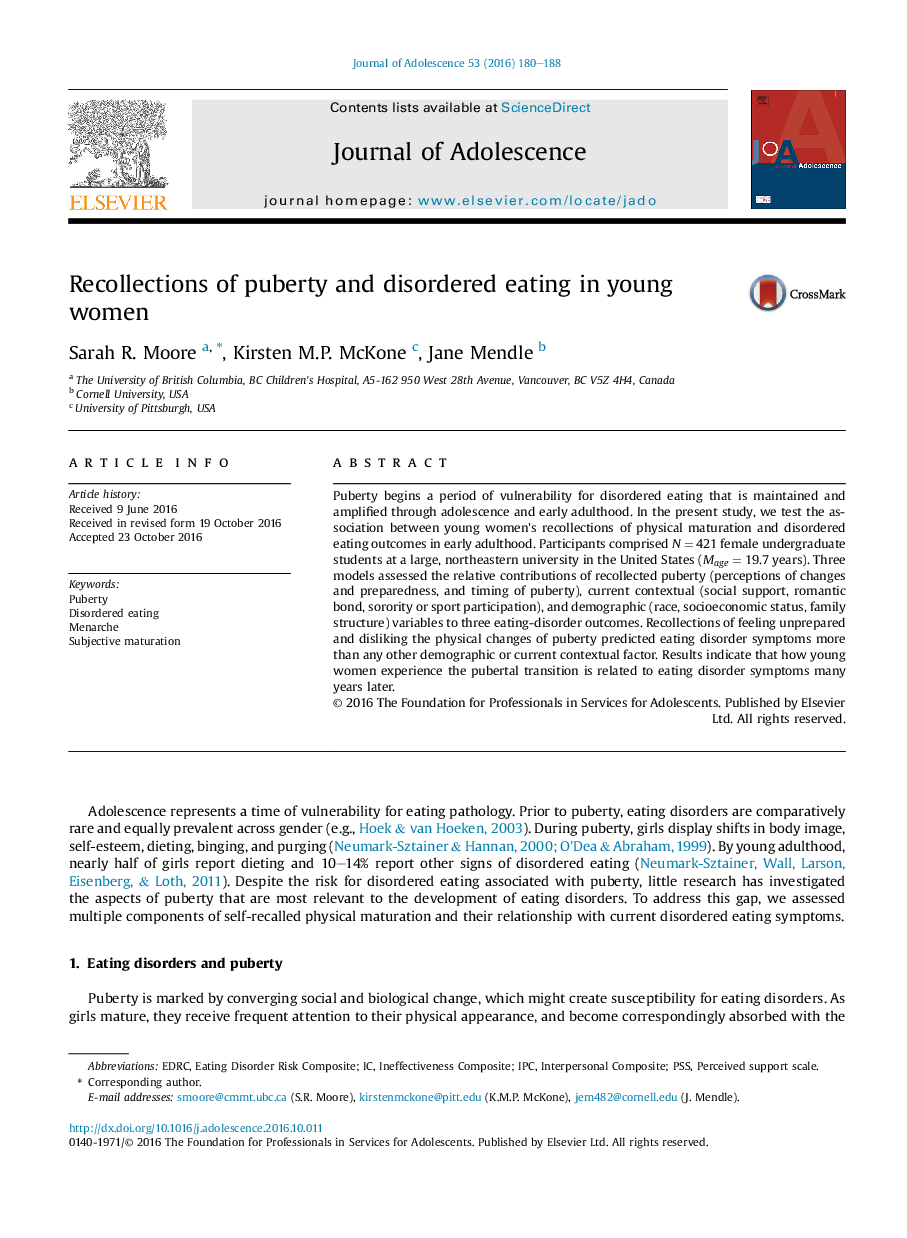| Article ID | Journal | Published Year | Pages | File Type |
|---|---|---|---|---|
| 5033892 | Journal of Adolescence | 2016 | 9 Pages |
Abstract
Puberty begins a period of vulnerability for disordered eating that is maintained and amplified through adolescence and early adulthood. In the present study, we test the association between young women's recollections of physical maturation and disordered eating outcomes in early adulthood. Participants comprised N = 421 female undergraduate students at a large, northeastern university in the United States (Mage = 19.7 years). Three models assessed the relative contributions of recollected puberty (perceptions of changes and preparedness, and timing of puberty), current contextual (social support, romantic bond, sorority or sport participation), and demographic (race, socioeconomic status, family structure) variables to three eating-disorder outcomes. Recollections of feeling unprepared and disliking the physical changes of puberty predicted eating disorder symptoms more than any other demographic or current contextual factor. Results indicate that how young women experience the pubertal transition is related to eating disorder symptoms many years later.
Related Topics
Health Sciences
Medicine and Dentistry
Public Health and Health Policy
Authors
Sarah R. Moore, Kirsten M.P. McKone, Jane Mendle,
